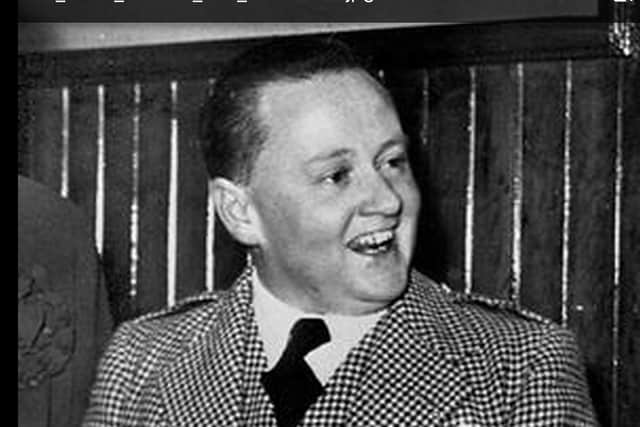The Scots baron who changed sex and pioneered trans rights 60 years ago
Ewan Forbes won the right to be recognised as 11th Baronet of Craigievar back in 1965 after his cousin fought him at the Court of Session to the Aberdeenshire baronetcy, which could only be declared by a male heir, on the grounds Forbes was a woman.
Forbes was born Elizabeth Forbes-Sempill in 1912 and officially registered as the youngest daughter of John, Lord Sempill.
Advertisement
Hide AdAdvertisement
Hide AdAfter a difficult childhood, which he later said followed the “ghastly mistake” to assign him as female at birth, Forbes travelled to the Continent in his late teens and underwent a series of hormone treatments in Germany.
According to accounts, by the time he was presented as a debutante to the Queen in 1930, aged 19, Forbes, who refused to attend a girls school and was educated at home, was growing facial hair given the heavy doses of testosterone he was taking.
He formally re-registered his birth as male in 1952, changing his name and taking a small advert out in the Press and Journal to announce he wanted to be known as Ewan. The advert, in September 1952, simply said: “Dr E Forbes-Sempill henceforth wishes to be known as Dr Ewan Forbes-Sempill.”
Shortly afterward, Forbes married his housekeeper and country dance teacher Isabella, who was described as the love of his life.
Following the death of his brother, Forbes, who worked as a GP in Alford before giving up his practice to focus on the family estate, found himself at the centre of a legal battle after his cousin challenged his right to inherit the baronetcy, which he later won.


The remarkable story was been investigated by academic Zoe Playdon in her recent book The Hidden Case of Ewan Forbes, with the author to appear at Aberdeen University, where he studied medicine, for two events as part of Book Week.
Jennifer Shaw, assistant curator, Museums & Special Collections, said: “Zoe’s visit will take place during the University’s Trans Awareness Week, and we hope these events will give many people an opportunity to hear more about this important local story and to ask the author about her involvement with LGBTI human rights.”
At Ms Playdon’s talk on Monday, the author was due to speak about her work locating the legal records at the heart of the court case that for many years were considered too controversial for public view.
Advertisement
Hide AdAdvertisement
Hide AdAfter the proceedings, which took three years to reach a conclusion that Forbes was intersex, then home secretary James Callaghan said Forbes should be entered in the Roll of Baronets as the 11th Baronet of Craigievar.
Throughout his life, Forbes seldom spoke about his personal battles and even in his autobiography, did not refer to the large part of his life when he was known as female.
Forbes, who died in 1991, aged 79, will now have his story made into a television series, which will be based on Playdon’s book.
Ms Playdon has a long academic career and more than over 30 years’ experience of frontline work in LGBTI human rights, including supporting and advising on UK legal cases.
Comments
Want to join the conversation? Please or to comment on this article.